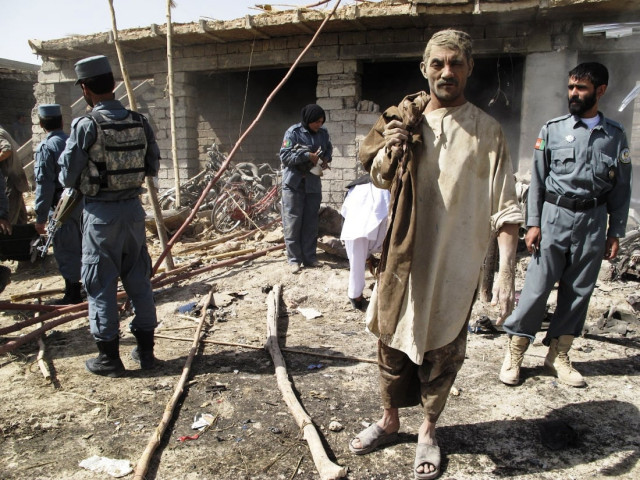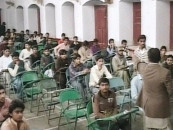Suicide bomb, blast kill 18 civilians in Afghanistan
Taliban claims responsibility for car bombing.

The roadside bomb in Herat province detonated under a van carrying a group of people back from an engagement party, killing all but four people on board, the provincial police chief's office said in a statement.
Abdul Raoof Ahmadi, a spokesman for the provincial governor, said there were 11 children among the dead. Four adult women and the driver were the other victims.
The explosion came just hours after a suicide car bombing near a local police chief's office in southern Lashkar Gah, a city in where two months ago foreign forces handed over responsibility for security to their Afghan counterparts.
The bomber hit in a busy street close to shops, government offices and a bakery that supplied bread to police. One of those killed was a child and 10 police were among the wounded, said Daoud Ahmadi, a spokesman for the governor of Helmand province.
Qari Yousuf Ahmadi, a spokesman for the Taliban, claimed responsibility for the Lashkar Gah attack in a text message sent to reporters.
Civilian casualties in Afghanistan are at record levels, and foreign troop deaths are down from 2010 but still high, while the insurgency is gaining strength in the once relatively peaceful north and west.
About three-quarters of civilians' deaths are caused by insurgents, UN figures show, although there are still many caused by foreign forces hunting militants with air strikes and night raids.
Helmand, bordering Pakistan, is an insurgent stronghold in which more foreign troops have been killed during the decade long war than any other province of Afghanistan.
The handover of Lashkar Gah in July, from NATO-led coalition troops, was seen as a critical test of the readiness of Afghan forces to assume control of security affairs.
It was one of the first six areas chosen to kick off a gradual withdrawal of foreign troops that will end with the return home of all NATO-led combat troops by the end of 2014, and the one that posed perhaps the biggest security challenge.



















COMMENTS
Comments are moderated and generally will be posted if they are on-topic and not abusive.
For more information, please see our Comments FAQ